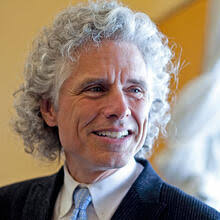Public rhetoric is minefield of unintended meanings. It needs to be tempered by alert self-monitoring.
With his usual flair for irony Stephen Colbert tossed out the question that heads this piece during his CBS show that included a video clip of President Trump. The President predictably decided to go off script at a gathering of his formal Board of Peace. With dignitaries from 20 nations in the room, he decided to remind them and those watching how much he liked young women. This thought escaped into this formal setting on February 19th, the very moment that most of the world was fixated on the unfolding Epstein/Prince Andrew saga of trafficking of girls and young women.
To say the thought was ill-timed is obvious. It fell out of his mouth after he veered into the weeds by complimenting one young diplomat on his good looks. One can imagine that after he made this strange observation it would be wise to chase the thought further down a rabbit hole, making it clear that this was not a homoerotic point. So he quickly added his own misfired punchline: but “women—I like.”
The leaders in the room sat in stunned silence. And so Colbert’s question was both a joke and a pertinent inquiry about Trump’s ill-timed self-own.
Is there any consistent situational awareness evident in his comments? Does he know what he should be saying at a formal event? This instance is another reason why presidential staffs like their bosses to work from carefully prepared manuscripts. Yet Trump fashions himself as a natural wit and raconteur. He is neither.
 Public rhetoric is tricky. It needs to be tempered by a careful degree of self-monitoring. A person needs to anticipate how comments made to others will be heard and understood. Failing at this vital social skill is like driving a car with a gas pedal stuck to the floor. More specifically, Presidents can’t use formal gatherings to deliver asides or rants more common to a social media troll. If not for him, the regrets of his staff must pile up faster than cars on an icy road. And the biggest risk is to be the last person in the room to notice the calamity of a verbal impulse not captured in time. Trump’s persistent tendency to want to chase after his randy reputation in comments about the appearance of women journalists only adds to the increasing association of him with the womanizing Jeffrey Epstein.
Public rhetoric is tricky. It needs to be tempered by a careful degree of self-monitoring. A person needs to anticipate how comments made to others will be heard and understood. Failing at this vital social skill is like driving a car with a gas pedal stuck to the floor. More specifically, Presidents can’t use formal gatherings to deliver asides or rants more common to a social media troll. If not for him, the regrets of his staff must pile up faster than cars on an icy road. And the biggest risk is to be the last person in the room to notice the calamity of a verbal impulse not captured in time. Trump’s persistent tendency to want to chase after his randy reputation in comments about the appearance of women journalists only adds to the increasing association of him with the womanizing Jeffrey Epstein.
As I noted a decade ago, the concept is central enough to be at the center of measures of social intelligence. The idea is meant to identify those traits of character that allow for the tempering of one’s own impulses to successfully mesh with the needs and feelings of others. This is another way to describe a person’s “rhetorical sensitivity:” an ability defined by Rod Hart and his colleagues to imagine “how one views the self during communication, how one views the other, and how willing one is to adapt self to the other.” Worded in a questionnaire where agreement affirms this general awareness, some of the items include the following:
- One should keep quiet rather than say something which will alienate others.
- The first thing that comes to mind is [not always] the best thing to say.
- When talking to your friends, you should adjust your remarks to suit them.
- A person who speaks his or her gut feelings is [not always] to be admired.
- We should have a kind word for the people we meet in life.
A thought often misattributed to Cicero is still a good one: “As man speaks, so is he.” It is probably too much to expect that Trump will ever acquire the social intelligence necessary to lead with empathy and compassion. In the meantime more of us respond by adopting versions of his rough rhetoric of personalization in our own counter-responses. In the end, the morality of human decency gets slighted in the very settings where it is needed most.
![]()


 “Swoon” is an old but good word. I see it as a particular form of ecstasy.
“Swoon” is an old but good word. I see it as a particular form of ecstasy. glories of the Count Basie Band or North German organ music. Record stores were one of the joys of my life but alien places for him. If music meant anything, it was bandleader Lawrence Welk’s corny covers of pop songs on ABC television. Welk is perhaps what Jello with marshmellows is to those who love fine dining. We did the smart thing and declared a truce.
glories of the Count Basie Band or North German organ music. Record stores were one of the joys of my life but alien places for him. If music meant anything, it was bandleader Lawrence Welk’s corny covers of pop songs on ABC television. Welk is perhaps what Jello with marshmellows is to those who love fine dining. We did the smart thing and declared a truce. A comment once made by the influential psychologist Stephen Pinker partly reflects this unexpected vacuum of feeling. He once compared music to “auditory cheesecake:” certainly OK, but “biologically functionless.”
A comment once made by the influential psychologist Stephen Pinker partly reflects this unexpected vacuum of feeling. He once compared music to “auditory cheesecake:” certainly OK, but “biologically functionless.”